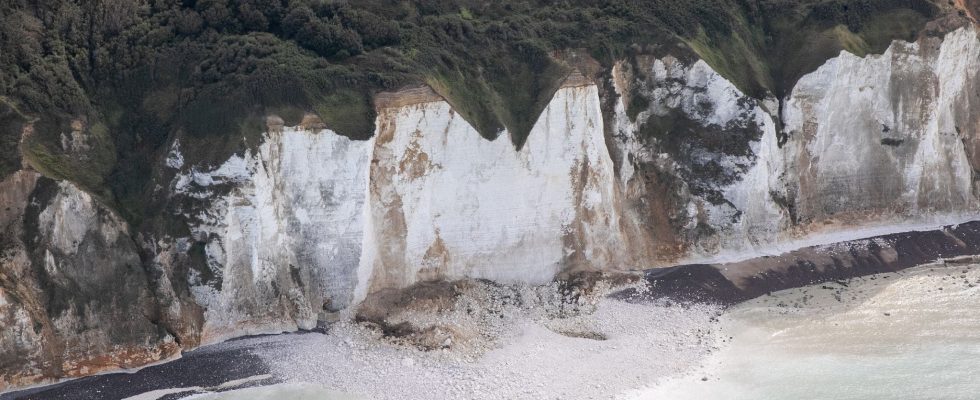It is the very archetype of a contradictory injunction. On the one hand, the Court of Auditors denounces the drift in our public finances, and in particular the surge in national debt, the amount of which now exceeds the threshold of 3,000 billion euros, according to INSEE. But on the other hand, the Sages point out France’s delay in adapting to climate change. A component that could prove extremely costly.
For several months now, scientists have been warning us: France has focused heavily on reducing CO2 emissions without giving sufficient thought to questions of adaptation. Some senior officials also saw the problem growing. “In terms of adaptation, we would need to anticipate soil depollution costs, or provide resources for the displacement of certain human activities threatened by flooding, to cite just two examples,” a member recently told L’Express. of the Le Lierre network of civil servants.
A figure is sometimes better than long speeches: according to Obs’COP 2023, the annual barometer of opinion on the climate published by EDF, 8% of French people surveyed are already certain of having to move within the next ten years. due to climate change and its attendant extreme weather events. However, as the Court of Auditors’ report underlines, “many territories strongly affected by coastal erosion are still not covered by a coastal risk prevention plan”. Urbanization can therefore continue in threatened areas!
Who will pay the bill?
Faced with this lack of preparation, the Wise Men’s report therefore has the merit of putting its feet in the dish. Over the course of its 750 pages, it lists a list of constraints from which we will not be able to escape: adaptation of housing, cities, the electricity network, and even armies whose equipment and men will suffer more in the future due to the climate change. How will France manage to get out of this mess? And above all, who will pay the bill? Should we bring out the Pisani-Ferry/Mahfouz report, quickly buried by Bercy last spring? To help finance spending dedicated to the climate transition, including adaptation, the two economists then recommended establishing a sort of green ISF, imagined as temporary, for an estimated revenue of 5 billion euros per year.
“Given the tense social context, the main lever, in the short term, will undoubtedly be that of the reorientation of existing credits,” analyzes a member of the Le Lierre network. There is no question of increasing the tax burden for the climate. The French will not accept it. Furthermore, the country must save money. This is the road map indicated by Bercy. “But all this risks confronting the State and local authorities with difficult choices. For example, the country needs to invest more in favor of the autonomy of the elderly. Should we do this or should we rather direct credits towards adaptation? Same thing at the municipal level. Should we favor roundabouts or provide resources to move a hospital located in a flood zone?
It clearly appears that the costs of adaptation are unavoidable, and often very high. It is curious that the report makes no link with its first part on the overall situation of public finances”, underlines an expert from Lierre. Thus the Sages demonstrate the urgency of taking into account these adaptation measures, but without resolving the substantive questions, namely the levers and tools to be mobilized. “One day we will have to make a connection between the two exercises”, annoys an expert. For the moment, our public finances remain disconnected from the issues environmental.
.
